Wilhelm I. / William I, German Emperor tipo de personalidade mbti
Personalidade
"¿Qué tipo de personalidad es Wilhelm I. / William I, German Emperor? Wilhelm I. / William I, German Emperor es un tipo de personalidad INFP en mbti, 1w9 - - 162 en enneagram, RCOAI en Big 5, LSI en Socionics."
Classic. We have a ruler here, so it must be EXTJ. I really want to believe that you all voted this man ESTJ while trying to vote Bismarck. He is so full of personal values that it's nearly impossible to call him other than Fi-dom. The summary of his reign is the clash of his own values with Bismarck's ambition. 1- Although Bismarck had different plans about Austria, Wilhelm wanted to stay as a loyal vassal. This was one of the biggest crises between these two. Jonathan Steinberg's interpretation: "This struggle for the King’s soul in August 1863 made Bismarck’s subsequent career possible. He ‘persuaded’ or ‘forced’ the King of Prussia to refuse an invitation which every fibre in his long, royal frame told him to accept. The intense emotions which both experienced during the confrontation and tears and exhaustion afterwards suggest that a profound struggle, not unlike that between a father and son, took place between the King and Bismarck over the Frankfurt Princes’ Congress. Bismarck prevailed because the King must have felt in the depth of his soul that this impossible Bismarck mattered to him. He could not do without him. It has occurred to me that in some way Bismarck might have played the role of the ‘good son’ which the Crown Prince Frederick William under the influence of the English princess less and less resembled." Probably Wilhelm found the deep connection, which most INFPs strive for, with Bismarck. Or maybe he was scared of change and the future without Bismarck's intelligence (Si tert). Maybe both, who knows? However, at this time of history, Bismarck had not yet proven himself. So, first possibility is likely correct. Second one can be added for the later times (there were hundreds of clashes between them). 2 - Schleswig-Holstein: He struggled the idea of acquisition, and was stubborn saying: ‘I have no right to Holstein’ for long time. There were many times in his life when he wanted to escape from stress and withdraw from responsibilities and sought peace. In times like this, there was a strong force which drove him forward, Bismarck. In Bismarck's words: "I was received at Babelsberg on September 22, and the situation only became clear to me when his Majesty defined it in some such words as these: ‘I will not reign if I cannot do it in such a fashion as I can be answerable to God, my conscience, and my subjects. But I cannot do that if I am to rule according to the will of the present majority in parliament, and I can no longer find any ministers prepared to conduct my government without subjecting themselves and me to the parliamentary majority. I have therefore resolved to lay down my crown, and have already sketched out the proclamation of my abdication, based on the motives to which I have referred.’ The King showed me the document in his own handwriting lying on the table, whether already signed or not I do not know." In Albert von Stosch's words: "The King answered angrily, that there is no question of war yet and still less of deposing German princes. He wants peace… Bismarck was by far the clearest and sharpest. I became convinced that he had brought about the whole situation in order to encourage the King to be more warlike … The meeting went on for three hours, and as we came out, the Crown Prince said, ‘we know no more than we did before. The King will not; Bismarck will." He was a hesitant man. "He combined a genuine concern for his servants with a sovereign disdain for the price his long hesitations would impose on them." (I'm almost at the word limit, so I can't offer much evidence on this. But I'll continue when I have free time and talk about why he is Ne-aux and Te-inf. Also about ESTJ votes... "How can he be INFP with 8w7?" Well, maybe you should change his ennegram? Also, try to read about people before voting them. Because this man has nothing in common with ESTJs) I want to conclude with his letter to Bismarck. This is the most INFP thing I have ever seen: "How can you imagine that I could even think of acceding to your idea! It is my greatest happiness (underline twice in the original) to live with you and to thoroughly agree with you! How can you be so hypochondriac as to allow one single difference to mislead you into taking the extreme step! You wrote me from Varzin at the time of the difference in the matter of making up the deficit, that you were indeed of another opinion than I, but that when you entered your post you regarded it as your duty when you had, as in duty bound, expressed your opinion, always to conform to my decisions. What, then, has so utterly changed the opinions you so nobly expressed 3 months ago? Your name stands higher in Prussian history that that of any other Prussian statesman. And I am to let that man go? Never. Quiet and prayer (twice underlined in the original) will adjust everything. Your most faithful friend (underlined three times) W."
Biografia
William I or Wilhelm I (German: Wilhelm Friedrich Ludwig; 22 March 1797 – 9 March 1888) of the House of Hohenzollern was King of Prussia from 2 January 1861 and the first German Emperor from 18 January 1871 to his death. William was the first head of state of a united Germany, and was also de facto head of state of Prussia from 1858 to 1861, serving as regent for his brother, Frederick William IV. Under the leadership of William and his minister president Otto von Bismarck, Prussia achieved the unification of Germany and the establishment of the German Empire. Despite his long support of Bismarck as Minister President, William held strong reservations about some of Bismarck's more reactionary policies, including his anti-Catholicism and tough handling of subordinates. In contrast to the domineering Bismarck, William was described as polite, gentlemanly and, while staunchly conservative, more open to certain classical liberal ideas than his grandson Wilhelm II.
Personalidades relacionadas
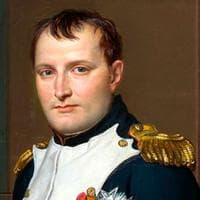
Napoléon Bonaparte

Otto von Bismarck
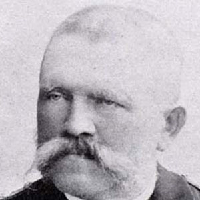
Alois Hitler
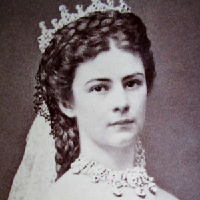
Empress Elisabeth of Austria
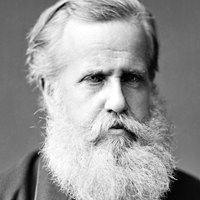
Pedro II of Brazil
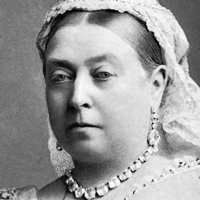
Queen Victoria

Frederick Douglass

Alexander I of Russia




